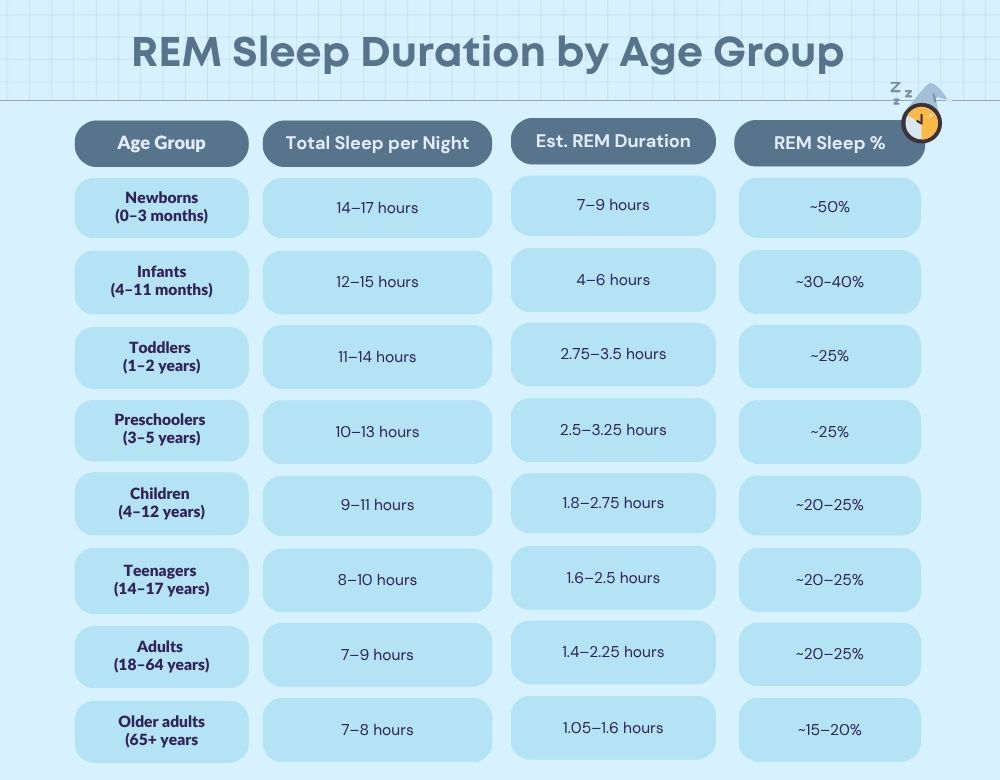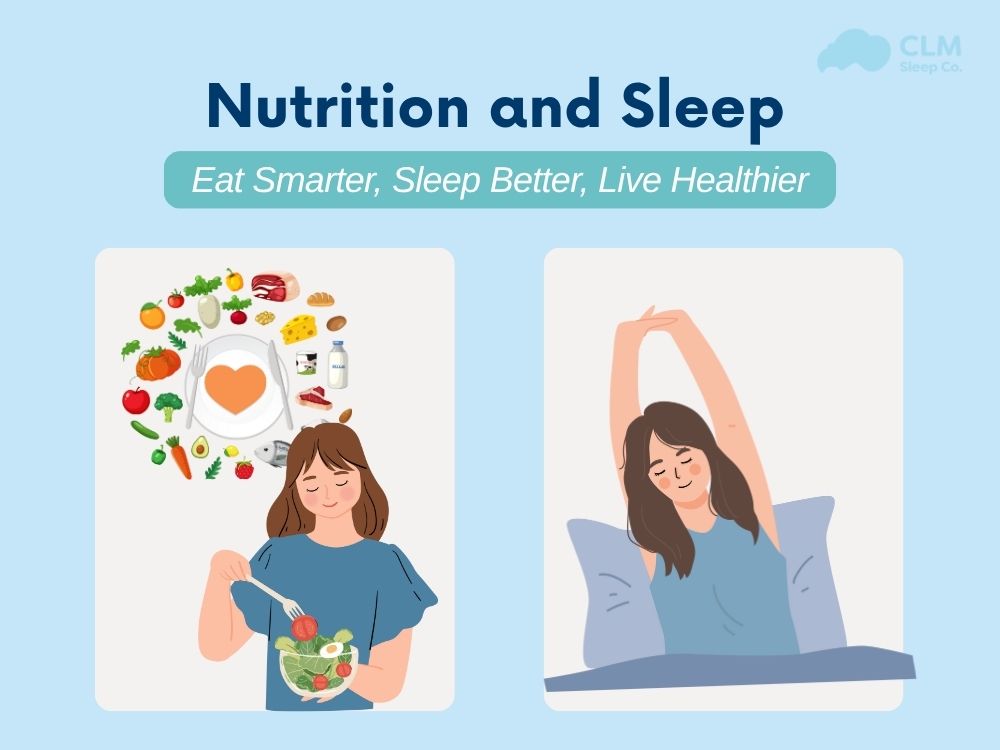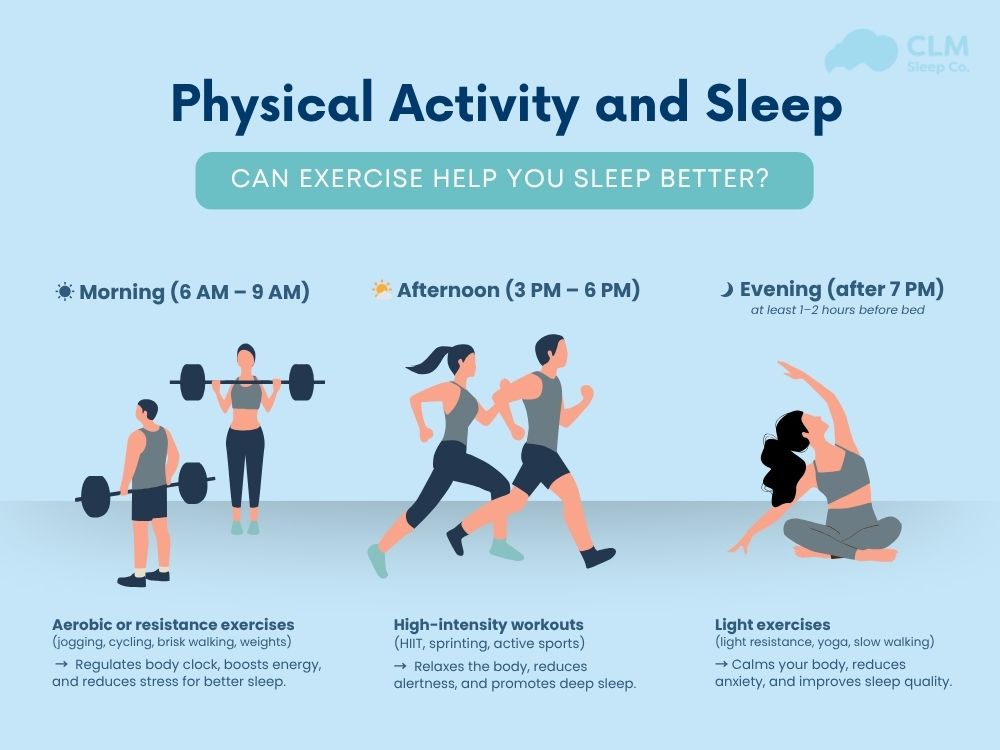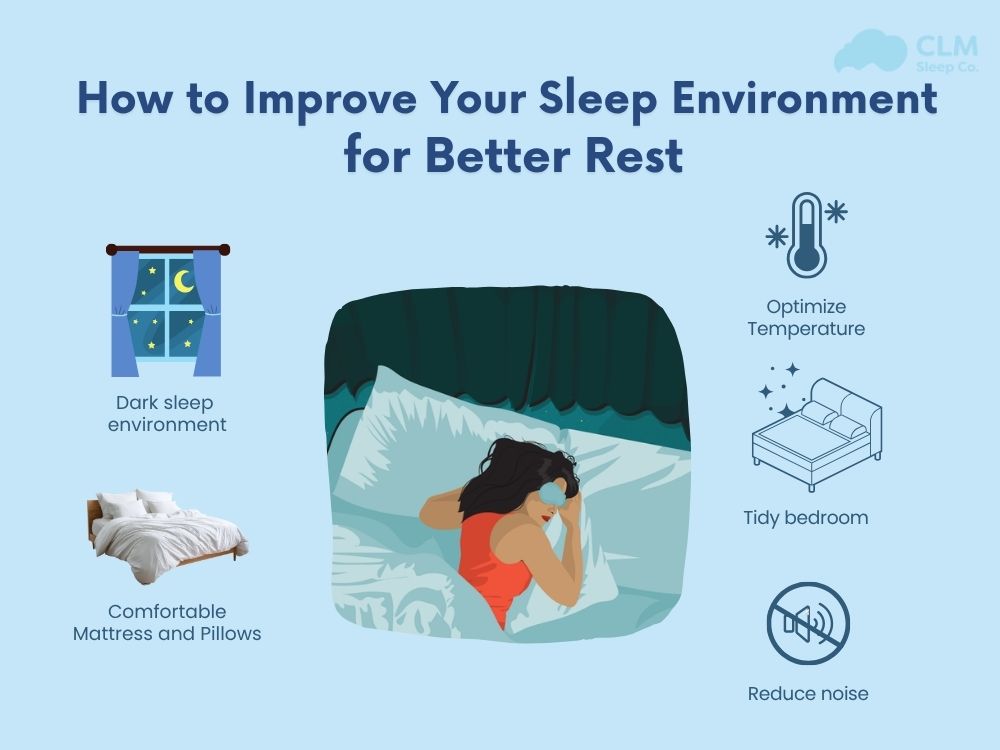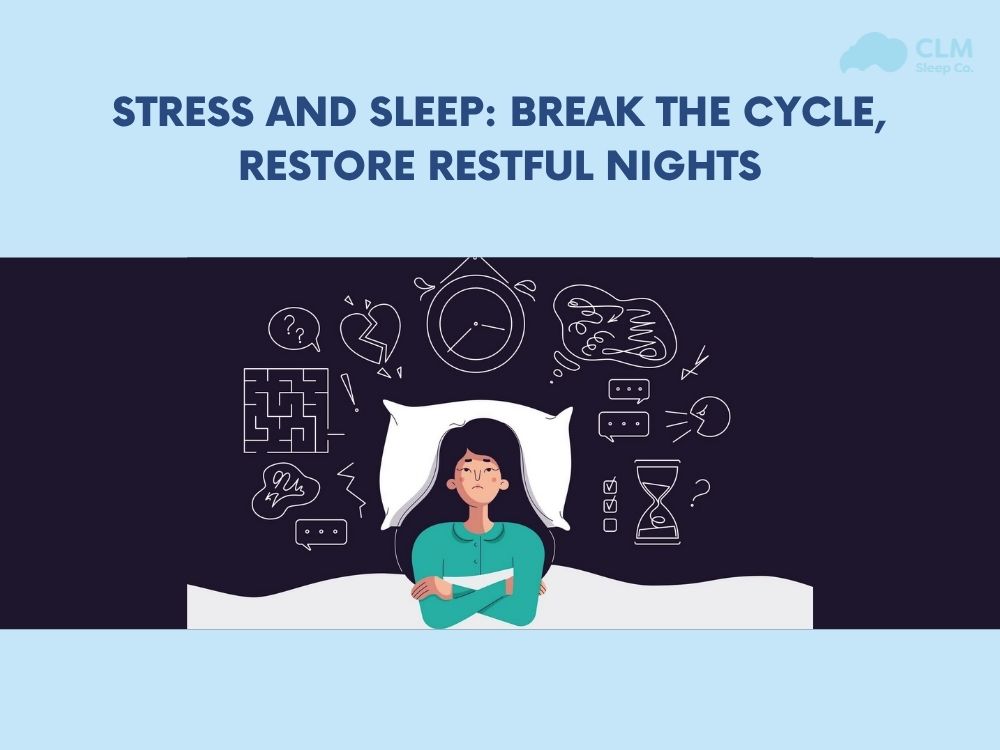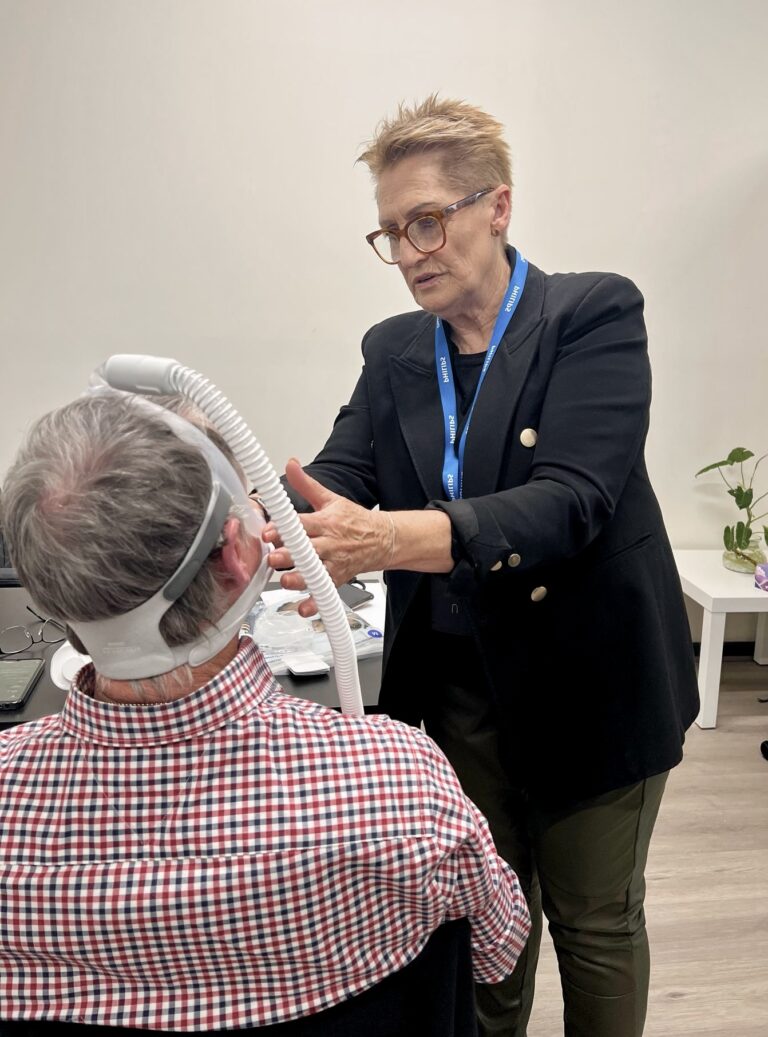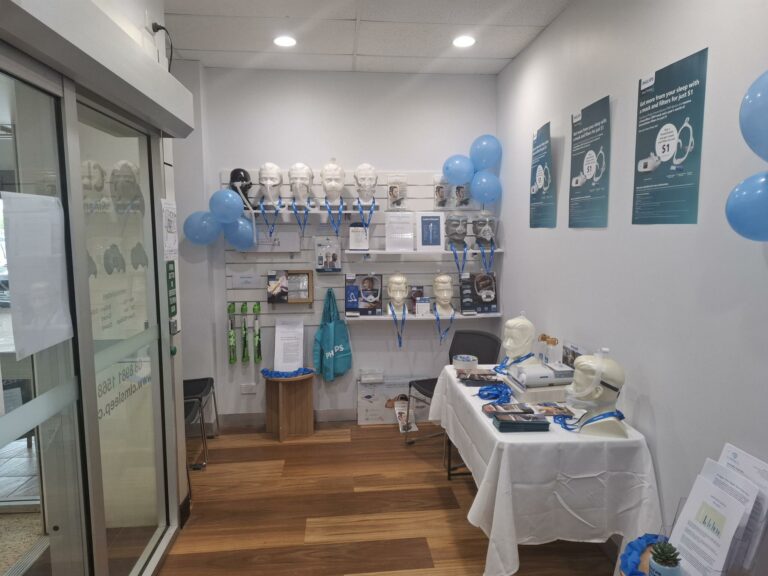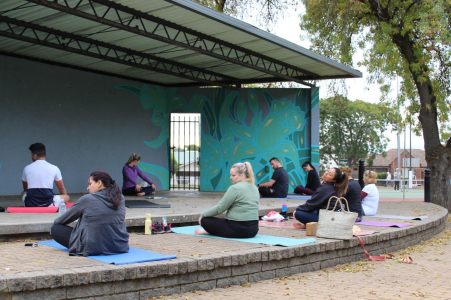Good sleep is important, but the type of sleep should be considered as well. The various stages of sleep all play a differing role in mental and emotional health, with particular prominence given to REM (Rapid Eye Movement) sleep. This stage involves processing memories, mood regulation, and learning. How much rem sleep should you get? This article will aim to highlight the perfect amount according to age and factors for every pair. It will also discuss how you can observe and improve your REM phase at home.
Why REM Sleep Matters
What Is REM Sleep? REM stands for Rapid Eye Movement. REM sleep is a vital phase of the sleep cycle wherein vivid dreams occur simultaneously with a very active brain. During this frog phase, your body is paralyzed while your brain works as if it was awake. An individual experiencing this state of being unconsciously unconscious goes to sleep, and it is believed to be of great benefit to .-restoring the mind and providing emotional equilibrium.
When Does REM Sleep Occur? Generally speaking, REM sleep initiates about an hour and a half after the subject falls asleep and then repeats cyclically throughout the night. Each subsequent cycle gets longer until the latest stages of the phase approached roughly last one hour. These late cycles are very rejuvenating; therefore, if you want to experience all the benefits of this sleep stage, you should aim for at least 7–8 hours’ worth.
REM sleep processes emotional information, forming memory, and learning. It organizes information acquired during the day along with regulating mood and promoting creativity. With reduced REM sleep, however, mental fog, emotional instability, difficulty concentrating, and problems recalling may set in.
See more about other stages of sleep: light sleep and deep sleep, both part of the NREM phase.
How Much REM Sleep Do You Need?
How much rem sleep should you get? There is no strict agreement on the exact amount a person needs, but this stage is considered essential for emotional balance and brain health. REM sleep is when most dreaming happens, and research shows that dreaming helps the brain process emotions and store memories.
General Recommendation for Adults
Most healthy adults spend about 20 to 25 percent of their total sleep time in REM sleep. With an average sleep duration of seven to eight hours, this means you should be getting around 90 to 120 minutes of REM sleep each night. This range supports memory, emotional stability, and mental clarity throughout the day.
Age-Based REM Sleep Requirements
REM sleep needs vary depending on age. While newborns may spend over half of their sleep in this phase, the percentage gradually decreases as we grow older. However, it remains important at every stage of life for brain development and emotional processing.
Below is a guide to ideal REM sleep duration by age:
| Age Group | Total Sleep Needed | REM Sleep (%) | Estimated REM Duration |
| Newborns (0–3 months) | 14–17 hours | ~50% | 7–9 hours |
| Infants (4–11 months) | 12–15 hours | ~30-40% | 4–6 hours |
| Toddlers (1–2 years) | 11–14 hours | ~25% | 2.75–3.5 hours |
| Preschoolers (3–5 years) | 10–13 hours | ~25% | 2.5–3.25 hours |
| Children (4–12 years) | 9–11 hours | ~20–25% | 1.8–2.75 hours |
| Teenagers (14–17 years) | 8–10 hours | ~20–25% | 1.6–2.5 hours |
| Adults (18–64 years) | 7–9 hours | ~20–25% | 1.4–2.25 hours |
| Older adults (65+ years) | 7–8 hours | ~15–20% | 1.05–1.6 hours |
Factors That Influence REM Sleep Duration
Several lifestyle and health-related factors can affect how much REM sleep you get each night:
- Sleep duration: The longer you sleep, the more REM cycles your body can complete. Shortened sleep often cuts off the later and deeper stages of this phase.
- Alcohol or medications: Certain substances, including alcohol and sedatives, can suppress or delay the onset of REM.
- Stress and anxiety: High stress levels may cause fragmented sleep and interfere with the natural flow into this stage.
- Sleep disorders: Conditions like insomnia, restless legs syndrome or sleep apnea can reduce both the quality and quantity of REM sleep.
Do REM Cycles Change Throughout the Night?
Yes, REM sleep changes significantly over the course of the night. Each sleep cycle lasts about 90 minutes and includes both non-REM and REM stages. In the first few cycles, REM sleep is short, often just 5 to 10 minutes. But as the night goes on, REM periods grow longer and deeper, sometimes lasting up to 60 minutes in the final cycles.
These later REM stages are the most restorative. They are when your brain is most active in processing emotions, consolidating memories, and supporting mental clarity. If you sleep fewer than six hours, your body may not reach these extended REM phases, which means you miss out on the most important mental and emotional recovery of the night.
To fully benefit from REM sleep, aim for at least seven to eight hours of uninterrupted sleep. This ensures your body completes all sleep cycles and reaches the most healing stages of REM.
See more: How to Get More REM Sleep Naturally?
Can You “Catch Up” on REM Sleep?
You can recover some lost REM sleep, but not completely. After a night of insufficient rest, your body may enter REM sleep more quickly and spend a longer time in it the next night. This is known as REM rebound. While this helps to some extent, it does not fully replace what was lost.
Ongoing REM sleep deprivation can negatively affect memory, mood, and mental clarity. The best way to support your brain and emotional health is to follow a regular sleep schedule, aim for seven to nine hours of sleep each night, and focus on getting high quality rest.
Rather than relying on occasional catch-up sleep, it is more effective to build consistent and healthy sleep habits that support your natural sleep cycles.
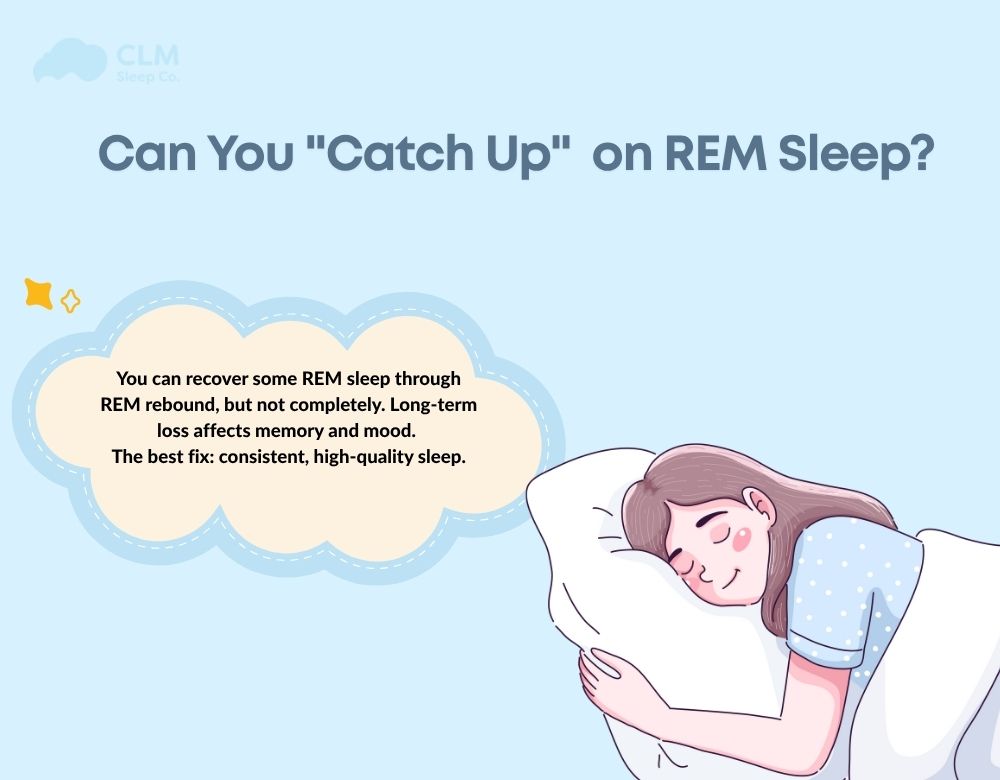
How to Track REM Sleep at Home
Tracking your REM sleep at home has become easier with the help of modern technology. Smartwatches, fitness trackers, and sleep tracking apps can estimate your REM sleep by analyzing your movement patterns and heart rate variability throughout the night. While these methods are not as accurate as professional sleep studies, they can still provide useful insights into your sleep quality and duration of REM sleep over time.
If you are experiencing ongoing sleep issues or simply want a more precise understanding of your sleep patterns, consider reaching out to CLM Sleep. We offer both in-lab sleep studies and convenient home sleep tests that deliver fast, effective, and accurate results.
Conclusion
REM sleep is essential for memory, mood, and brain health. Adults should get about 90 to 120 minutes of it each night. To improve this stage, aim for 7 to 9 hours of quality rest, manage stress, and keep a consistent routine. Knowing how much REM sleep you need and how to track it at home can help you sleep better and feel your best.
See more:
